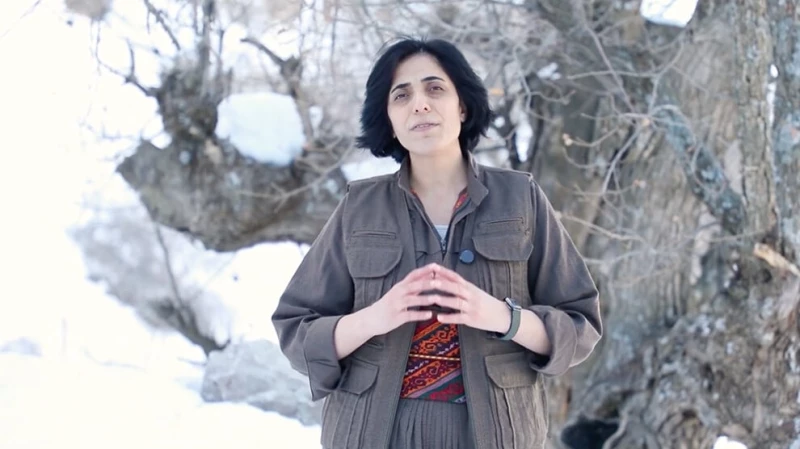The serendipitous twist of fate brought Mukhlid Ibrahim*, 37, face to face with the stark reality of his AIDS diagnosis, a revelation that sent shockwaves through his world. Initially, Mukhlid was left with no choice but to keep his illness under wraps from those closest to him, fearing the potential repercussions. His primary concern was not to instill fear or alienate his loved ones, but rather to shield himself from the specter of rejection by family and friends, and the looming threat of social ostracism.
The tale of this young man, originating from Thi Qar Governorate, unfolds from his journey to northern Iran in early 2022.
It was during this excursion that he engaged in unprotected intercourse with a young woman, unaware of her HIV-positive status. It was only after this encounter that he learned of her infection with the virus, commonly known as AIDS.
"Upon my arrival back in Iraq in mid-February 2022, life appeared to resume its normal course. However, a few weeks later, I was hit by a severe fever and diarrhea out of the blue,” Ibrahim said. “Though these symptoms subsided quickly, they left me feeling uneasy. It was not until June, during pre-marriage medical tests with my fiancée, that the reality became apparent: I had contracted AIDS."
With palpable anguish in his tone, Ibrahim further shares, "Overwhelmed by shock, I fled without disclosing the truth to my fiancée. I concealed the matter from my family and those in my vicinity. I endured social isolation, gripped by the fear of transmission, as my body deteriorated. It wasn't until the doctors persuaded me of the imperative need for treatment to protect my loved ones that I relented."
His experience is not an isolated incident; rather, it reflects a broader trend seen in thousands of cases, both documented and undocumented, of individuals grappling with the disease. Often, these individuals conceal their infection status, as well as the sources of risk and transmission factors, particularly within the confines of their family environments.
In spite of the abundance of information and scientific knowledge regarding the disease, “society still grapples with a pervasive sense of fear towards individuals living with AIDS," Israa Tareq, an infectious diseases specialist said.
"To dismantle the discriminatory barriers surrounding those with HIV, we must prioritize education on the realities of AIDS through awareness initiatives, seminars held in schools, universities, youth centers, and community gatherings,” she added.
Israa stresses the importance of taking essential precautions to prevent both infection and transmission of the virus.
"While a complete cure for the virus remains elusive, it's crucial to note that effective treatments can successfully suppress it, preventing its spread within the infected individual's body and enabling them to lead fulfilling lives,” she said, adding that “government hospitals issue each patient a confidential identification code as a mark of respect for their privacy. This code allows access to healthcare facilities for treatment and ongoing testing. Additionally, specialized doctors are on hand in every healthcare institution to oversee the care of AIDS patients, supported by dedicated wards specifically designed for their needs."
Ahmed al-Khafaji, a member of the Thi Qar Provincial Council and a physician, said that the surge in AIDS infections in recent years within Thi Qar Governorate has spurred local authorities into action.
He characterized these actions as precautionary, involving the monitoring of returning travelers and newcomers to the region. Additionally, a joint committee comprising representatives from the Ministry of Health and the Organized Crime Department has been established to identify infection hotspots. Khafaji highlighted that despite the rise in recorded infections, they still "remain within the natural limits of global rates."
Infections stemming from blood transfusions
Salam Radi never anticipated that administering a blood transfusion to his 12-year-old daughter, Zainab, who has battled thalassemia since she was 10 months old, would ultimately culminate in her untimely passing.
Unfortunately, this transfusion inadvertently exposed her to HIV, compounding her suffering and hastening the deterioration of her already fragile health.
"In May 2022, my daughter faced a health emergency that required her admission to Al-Zahra Hospital in Najaf. Upon her arrival, the medical team deemed it necessary to administer a blood transfusion. However, following the procedure, her health took a sudden and alarming turn for the worse,” Radi recalled.
The doctor proceeded to conduct a series of laboratory tests to ascertain her condition, only to make a startling discovery: Zainab was infected with HIV.
This revelation plunged the entire family into a harrowing ordeal, fraught with fear and uncertainty about the potential transmission of the virus.
Doubts and questions swirled about, probing into the myriad possibilities and reasons behind this unforeseen turn of events.
"In an effort to safeguard the well-being of our family, we all underwent laboratory testing, revealing that Zainab was the sole individual infected. Subsequently, an administrative inquiry was launched into the incident,” the grieving father said. “According to the Najaf Health Department's findings, a total of 85 cases of infection stemming from blood transfusions administered to returning individuals and newcomers to the province were documented."
Zainab's battle with the newfound infection proved brief, tragically culminating in her final breath, as recounted by Radi, thereby bringing the investigation to a somber close.
AIDS transmission in tattoo parlors
A subsequent laboratory test, undertaken by Hussein Talib, aged 25, in February 2018 prior to his gallbladder surgery at a hospital in downtown Baghdad, yielded a "positive" result.
"The news of the positive result hit me like a ton of bricks—I was overcome with severe dizziness and even fainted from the shock,” Hussein, who is currently pursuing his university studies, recounted. “For months afterward, I endured recurring fainting spells every time I had to visit the hospital for treatment, until eventually, I became accustomed to it."
With tears streaming down his face, he adds, “I have never traveled anywhere in my life, nor have I visited brothels, or had any contact with infected individuals. However, I did visit a specialized tattoo clinic in the Karrada area back in November 2017. It appears that is where I contracted the infection."
Confidential documents obtained from the Iraqi Ministry of Health unveil a rise in HIV infections among patrons of "tattoo" and "massage" centers that flout health regulations.
Former member of the Human Rights Commission, Ali al-Bayati, affirmed that "the proliferation of unregulated massage and tattoo parlors has played a role in the uptick of AIDS cases."
Bayati further linked the surge in infections to Iraqis' exposure to the global community, citing travel abroad and interactions with expatriates returning for work. He advocated for implementing a set of "preventive measures targeting travelers to countries with high rates of AIDS infection."
“We are grappling with a deficiency in health awareness to effectively combat this disease, compounded by social barriers, all against the backdrop of insufficient efforts from relevant state institutions," Bayati said.
AIDS in Iraq
In the 1980s, the Iraqi Ministry of Health struck a deal with the French company "Marie" to procure Factor 8 and Factor 9 serums, crucial for aiding blood clotting in hemophilia patients.
However, following the administration of this medication in Baghdad hospitals, it led to 286 Iraqis contracting AIDS. Consequently, the infected individuals were placed in quarantine, and their illness was concealed from the public eye.
Iraqi authorities swiftly realized that the shipment from the French manufacturing company containing those serums was contaminated with the HIV virus. Consequently, Iraq witnessed its initial cases of this disease at a juncture when it lacked any specific treatment program.
The transfer of blood plasma products to hemophilia patients was fraught with risks, often resulting in the transmission of other diseases such as viral hepatitis and HIV to the recipient. This occurred prior to the advent of advanced transfusion techniques.
Former Iraqi Health Minister Saleh al-Hasnawi revealed in press statements that the serums supplied by this company resulted in 286 individuals contracting AIDS. Despite Iraq's positive relations with France, the government chose to suppress the matter and placed the infected individuals in quarantine at Al-Tawitha Hospital southeast of Baghdad.
Following the year 2003, successive Iraqi administrations made several efforts to revisit the case in pursuit of compensation. However, the absence of concrete evidence and delays in initiating legal proceedings thwarted any advancement.
In response, the government took action in 2023, spearheaded by the parliament, to draft legislation aimed at providing compensation to the victims or their families. Majid Shingali, the head of the Health Committee in Parliament, outlined the proposed compensation package, which includes 100 million dinars, a residential land plot, and a monthly salary.
Iran: a gateway of danger
According to infectious disease specialist Haider Hantoush, the official tally of AIDS patients in Iran stands at 65,000 cases. Yet, based on reasonable extrapolation, it is believed that the true number of infections surpasses the reported figures by a considerable margin, and remains substantially higher than the recorded cases in Azerbaijan.
Hantoush asserts that traveling to Iran and returning without undergoing medical testing, particularly among young people, "poses a risk to society" and warrants attention.
He also voices concern about "the abrupt halt of medical testing for Iraqi tourists returning to the country at airports and borders, and we are unaware of the authority responsible for suspending these crucial precautionary measures."
Hantoush underscores the necessity of mandating testing for viruses, including HIV, for individuals arriving from high-risk areas who have been abroad for more than two weeks. He advocates for imposing fines on those who fail to comply with these measures and for enhancing surveillance to monitor their movements closely.
He highlights that the authorities have "recognized the trend of AIDS patients avoiding detection and relocating due to fear of social discrimination and stigma," underscoring a major challenge faced by AIDS patients in Iraq, where they are often met with suspicion and apprehension.
In recent years, Iraq has experienced a notable surge in infections, particularly in Thi Qar Governorate, which reported over 150 AIDS cases in 2023, as per Hantoush.
He notes that "a significant portion of these infections were incidentally discovered when patients presented at hospitals for blood donations, marriage screenings, or surgical procedures. Consequently, we anticipate the actual number to be substantially higher than what is officially recorded."
Majid Shingali, head of the Health Committee in Parliament, diagnoses the issue of virus transmission among Iraqi travelers and incoming visitors to the country. He observes that with the proliferation of travel opportunities abroad, particularly through group tours, "many Iraqi travelers fail to adhere to health guidelines and return to the country carrying the virus."
Following diagnosis, AIDS patients in Iraq receive antiretroviral drugs and specialized treatments, alongside essential guidance to help them adjust to their new reality and manage the illness. They undergo regular monitoring, essential tests, and receive ongoing treatment to ensure their well-being.
Government denial and recommendations
Ali Abu al-Tahain, a member of the media support team for the Ministry of Health, allays fears regarding the potential surge in HIV/AIDS cases, refuting claims of an increase in Iraq's recorded cases.
He underscored that "HIV/AIDS infections in Iraq remain under control, unlike the concerning trends observed in regions such as Africa, Central and South America, and Southeast Asia."
"Regrettably, periodic screenings are not conducted at airports and government checkpoints. Therefore, citizens must be vigilant and avoid engaging in unprotected sexual activities, patronizing unlicensed tattoo and massage parlors, as well as cosmetic centers and hair transplant clinics, both domestically and internationally,” he said. “Additionally, the issue of drug abuse, particularly through the sharing of needles, remains a significant concern."
Abu al-Tahain underscored the significance of early screening, asserting that timely treatment plays a crucial role in curbing the spread or transmission of the virus to others. He voices apprehension regarding the vulnerability of high-risk populations, especially individuals with blood disorders who necessitate periodic blood transfusions.
He urged individuals returning to the country who experience symptoms such as prolonged unexplained fever lasting for a month, persistent diarrhea for weeks, and a weight loss exceeding 10 percent of their normal body weight to seek immediate medical attention at government hospitals for laboratory testing.
A reliable source within the Ministry of Health disclosed the presence of numerous memoranda and official correspondences addressed to ministries and security agencies overseeing airports and border crossings nationwide.
These communications stress "the imperative of mandating Iraqi travelers returning from high-risk HIV/AIDS countries to undergo testing upon arrival in Iraq. Passport stamping should be withheld until the requisite tests are completed, particularly for travelers originating from countries with a high or moderate infection rate."
The Ministry of Health has issued a directive to all hospitals, requiring comprehensive laboratory testing for every patient prior to entering the operating room. This measure is aimed at ensuring that patients are not infected with transmissible viruses, including HIV/AIDS, as part of the concerted efforts to prevent the spread of such viruses.
Thousands Infected
Despite government assurances regarding the limited number of recorded cases in the country, statistics from the Ministry of Health for 2021 revealed 392 reported cases and 21 fatalities. The figures for 2022 saw an increase, with 446 cases reported nationwide, excluding the Kurdistan region, where 33 deaths were recorded, including 9 females.
According to Majid Shingali, head of the Parliamentary Health Committee, the Ministry of Health's records indicate 2040 registered infected individuals. However, he estimates that this number could be double the official count.
Many individuals refrain from undergoing laboratory tests, and some infections may go unregistered even after diagnosis.
The surge in infections in cities like Nasiriyah prompts scrutiny of the Ministry of Health's strategy for tackling AIDS, particularly in light of allegations of concealment and insufficient transparency regarding the issue. This is compounded by concerns over the suspension of essential screenings at airports.
The lack of screenings for incoming travelers and inadequate regulation of tattoo and massage centers may put numerous individuals at risk, similar to the ordeal faced by Nabras Aziz*, aged 41, and his family.
In December 2016, Nabras, a married resident of Baghdad and father of two, embarked on a tourist trip to Lebanon.
Within just two days of arriving in Beirut, he engaged in unprotected sexual encounters with three Lebanese women involved in unsafe sex work.
As a consequence, he found himself added to the Ministry of Health's roster of registered AIDS patients. Nabras tested positive for the virus two months after returning from Beirut, just before undergoing a procedure for chronic middle ear inflammation at Yarmouk Teaching Hospital in Baghdad in March 2016.
Now grappling with his illness, Nabras recounted, "Following my diagnosis, I was tasked with safeguarding my family. Unfortunately, the results unveiled the tragedy I unknowingly brought upon them, as my wife, son, and daughter were also found to be infected. We were all directed to the treatment and counseling center for immunodeficiency patients at Al-Karama Teaching Hospital.”
He paused for a moment, collecting his thoughts before continuing, "Had there been early screenings, perhaps the infection would not have spread to my family... I live with immense anguish, and anxiety constantly looms over us."
* This feature was produced in collaboration with the Network of Iraqi Reporters for Investigative Journalism (NIRIJ)



 Facebook
Facebook
 LinkedIn
LinkedIn
 Telegram
Telegram
 X
X


